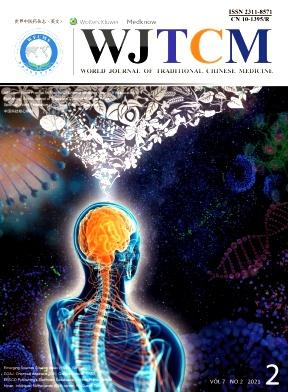Cytotoxicity and apoptosis assay of novel cyclomyrsinol diterpenes against breast cancer cell lines
IF 3.2
3区 医学
Q1 INTEGRATIVE & COMPLEMENTARY MEDICINE
引用次数: 6
Abstract
Background: Cyclomyrsinane diterpenes especially those extracted from various Euphorbia species have shown interesting biological properties in recent years. Because of the high prevalence of breast cancer and the challenges ahead in its treatment, the use of these compounds as potential anti cancer agents seem reasonable. Objectives: The aim of the present study was to evaluate the cytotoxic effects of some myrsinane type diterpenoids extracted from Euphorbia sogdiana Popov and determine their induced cell death mechanism. Methods: MTT assay was used to determine the cytotoxicity of six various myrsinane compounds on MCF 7 and 4T1 breast cancer cell lines. Human umbilical vein endothelial cells were used as the normal cell line too. The apoptotic effects of the structure with the most cytotoxic effects were determined using flow cytometry assay in IC50 concentration for 24 h of incubation. Results: Compound (6) showed the most cytotoxic effects with IC50 of about 8 ± 4 and 24 ± 4 μg/mL for MCF 7 and 4T1 cell lines, respectively. Furthermore, the cells treated with 5 and 10 μg/mL of compound (6) for 24 h, showed 37 and 55% of apoptotic cells. Conclusions: These surveyed compounds have the potential to be considered as useful anti-breast cancer agents due to the great cytotoxicity and apoptotic effects against these cancer cells and the fact that there was no significant cytotoxicity on normal cells.新型环霉醇二萜对乳腺癌细胞株的细胞毒性和凋亡试验
背景:近年来,从大戟属植物中提取的环霉烷二萜类化合物显示出了令人感兴趣的生物学特性。由于乳腺癌的高患病率及其治疗面临的挑战,使用这些化合物作为潜在的抗癌剂似乎是合理的。目的:研究从大戟中提取的几种桃金娘烷型二萜的细胞毒作用,并探讨其诱导细胞死亡的机制。方法:采用MTT法测定6种紫薇烷化合物对mcf7和4T1乳腺癌细胞株的细胞毒性。以人脐静脉内皮细胞作为正常细胞系。在IC50浓度下,流式细胞术检测细胞毒性最强的结构对细胞凋亡的影响。结果:化合物(6)对mcf7和4T1细胞的杀伤作用最强,IC50分别为8±4和24±4 μg/mL。5、10 μg/mL化合物(6)作用24 h,细胞凋亡率分别为37%、55%。结论:这些化合物对乳腺癌细胞具有很强的细胞毒性和凋亡作用,而对正常细胞没有明显的细胞毒性,因此有可能被认为是有用的抗乳腺癌药物。
本文章由计算机程序翻译,如有差异,请以英文原文为准。
求助全文
约1分钟内获得全文
求助全文
来源期刊

World Journal of Traditional Chinese Medicine
Medicine-Complementary and Alternative Medicine
CiteScore
5.40
自引率
2.30%
发文量
259
审稿时长
24 weeks
 求助内容:
求助内容: 应助结果提醒方式:
应助结果提醒方式:


